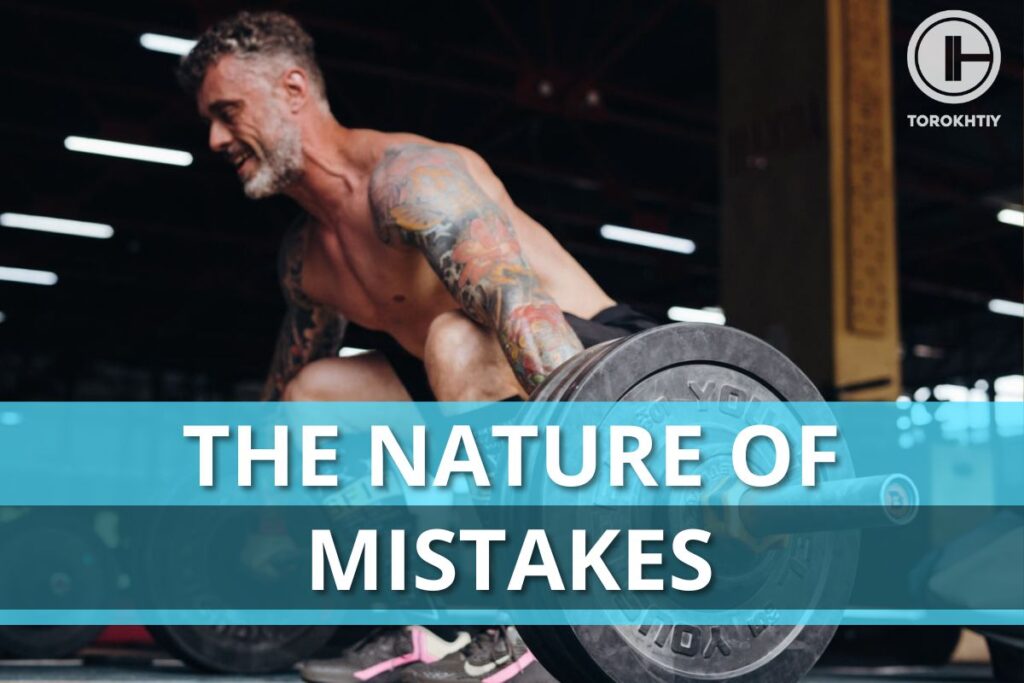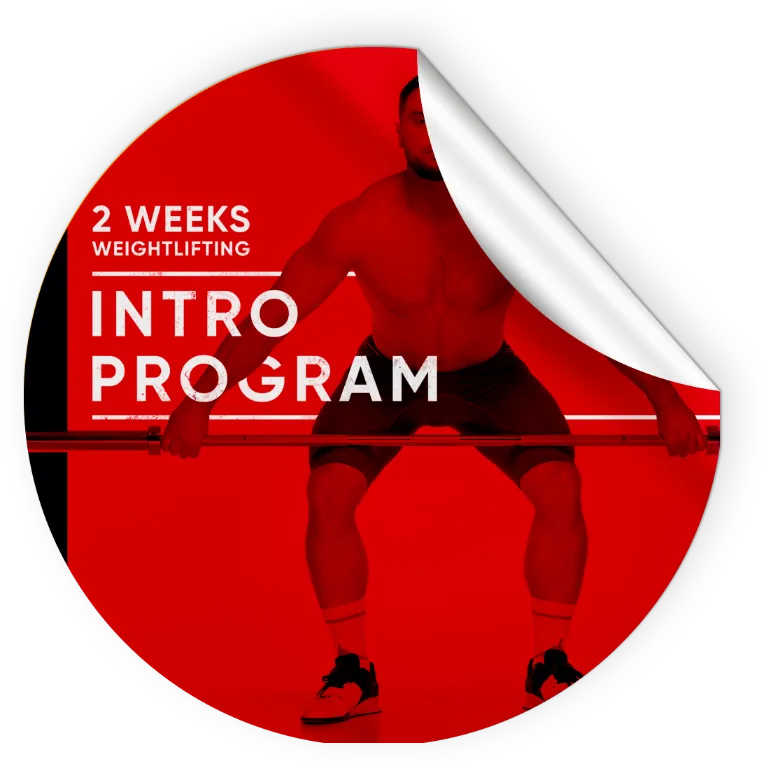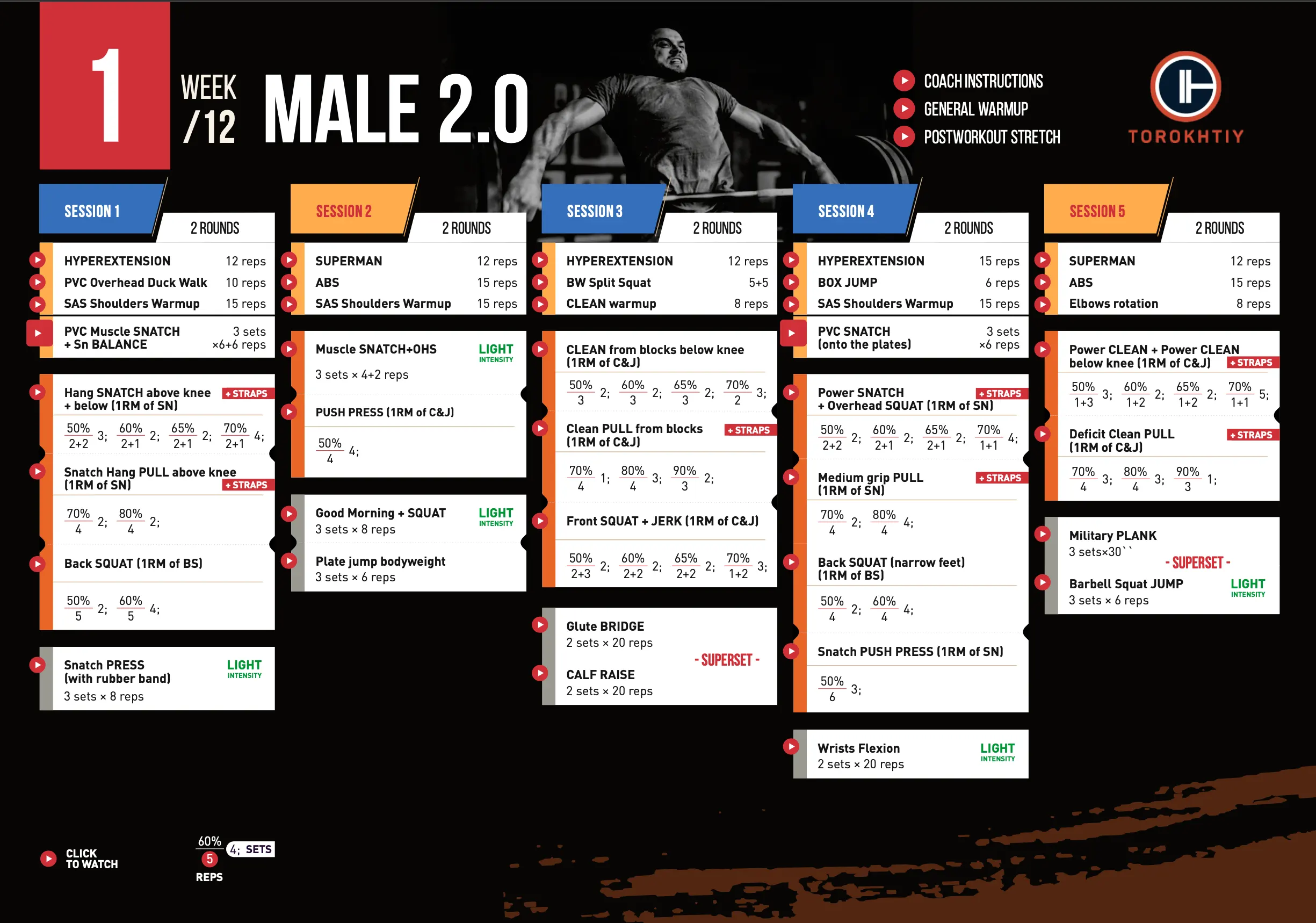The Nature Of Mistakes
Author:
Unlock your full potential by engaging with our experts and community! Have questions about your fitness journey or looking for expert advice on weightlifting techniques? Don’t hesitate — leave a comment below and Sergii Putsov will provide a personalized answer and insights to help you reach your goals.
Torokhtiy is reader-supported. Some links are affiliate links, and we may earn a commission at no extra cost to you. See our disclosure page for details.

This article also available as audio. Check this out!
Subscribe and listen it anywhere:
Every athlete dreams of perfect technique in their sport just the way every professional does. Only thousands of hours and long years of hard dedicated work can develop one’s mastery. But still, you may catch even the greatest genius having some technical flaws. Therefore, it’s a completely expected thing among athletes with several years of experience, those who don’t have an opportunity to work out consistently or do sports just for pleasure.
Sports technique is the most efficient and reasonable way of performing an exercise (for example, the snatch of the C&J) in terms of using psycho-physical resources.
You may like it:
- Detailed Olympic Weightlifting Program For Beginners
- 12-Week Weightlifting Program For Women (Detailed Example)
- Create Your Olympic Weightlifting Program (Examples Included)
Olympic Weightlifting is an explosive strength sport. The main point of its technique is to develop the highest possible power and speed of both an athlete and a barbell and maintain its optimal trajectory.
Follow us!

Free!
Get a 2-week Weightlifting Program as a bonus for the subscription to kickstart your training plan!

Free!
There are several means of technique assessment:
- comparing your technique with a biomechanical standard (for example, a trajectory or velocity features);
- comparing your movement with top athletes’ technique;
- analyzing your results in technically easier exercises that show your strength, explosive strength, etc. For example, squats or front squats.
A training session is not only about improving your physical qualities: strength, speed, coordination, flexibility, and endurance (yes, it is also important in Weightlifting in the form of strength endurance), but also about consistent learning and improving one’s technique.
There are some characteristics of well-established movements:
- stable results and technical features in the training environment;
- the stability (or low variability) of results at competitions (or in irregular conditions);
- maintaining technical skills even after a break;
- automatic movement performance.
After all, why do we make technical mistakes?
Let’s have a look at 4 main factors that directly influence our technique:
1. The poor understanding of the whole movement
An athlete can’t really conscientiously and effectively work on their technique in case they have no idea why the back position or feet balance should be checked in the starting position or why a barbell should be jerked with their arms relaxed.
2. Improper muscle work
It is partly caused by the previous point, especially the wrong sequence of movements. For example, when an athlete gets up on their toes before even straightening the knees; or when instead of working with your arms quickly, you strain them too much hoping that it will help to snatch. There is no chance of using biomechanics and angles sufficiently in this case.
3. Tracking your result only considering kilograms but not technical progress
That is the most painful problem of amateur sport. Athletes who do weightlifting as a hobby tend to forget that first, you should lift a barbell nicely and kilograms will come along a bit later.
4. Using exercises or loads that may worsen one’s technique
Talking with people involved in functional fitness and masters division athletes in the USA, I have heard this question: “How many reps and kilos should I use for the deadlift?” To start with, weightlifters shouldn’t perform this exercise too often, especially for 6+ reps. Neither bending backward nor sore muscles will increase your speed or improve the turnover phase of the snatch.
As I have mentioned before, at every stage of a sports path, an athlete stumbles across some kind of technical mistake – it is absolutely all right. And, of course, it is worth finding the way out of these “traps”.
Now, let’s talk about psychological and physiological factors:
1. An athlete’s abilities and capacity
It’s time for harsh coaching truth. It is common knowledge that in any activity, there are people with a remarkable and average capacity, but there are also those who are not gifted enough, for example, to master the second pull in the snatch. Yes, it’s brutal but still, it’s reality. But it doesn’t mean that a coach should say: “Quit it, you will never succeed.” A coach is a teacher who must always help anyone but at the same time, it is worth keeping in mind that one’s abilities and, therefore, results may vary. Every coach dreams of coming across a great talent like Ilya Ilyin who is outstanding at everything. But meeting such an athlete is great luck. However, a teenager may not be gifted at strength, flexibility, or coordination but may have a passionate desire to grow into a remarkable weightlifter.
2. Motivation for solving a problem
Obviously, even the greatest champions tackle some technical problems. But the difference between outstanding athletes and ordinary ones lies in the willingness to work on and overcome one’s weaknesses. Mistake elimination is not only about honing particular elements with light or heavy weights but also about consistent, monotonous, and sometimes boring work on muscle disbalances and compensation, strengthening the tinies muscles and stabilizers. From my own experience, most athletes are too lazy to struggle with it.
3. The fatigue level and the preparation period
Needless to say, muscle and nervous exhaustion make an athlete more likely to make technical mistakes. It has to be taken into account while load planning or demanding high-quality movements at the training session. For example, when an athlete has 9 workouts a week and suddenly, during the 8th one they start messing up because either muscles or a brain can’t work properly, the training intensity should be lowered or, perhaps, it is worth switching the exercise to the easier one. On the other hand, when the loads are decreased due to the competition period and the recovery is better, an athlete’s movements become more accurate, fast, and effective.
4. The ability to grasp and learn information
I have no intention to wrong somebody and I don’t mean that there are stupid and clever people. The point is that two different athletes may have the same drawback. A coach may tell them and help with this mistake. Though both athletes are strongly motivated to get rid of it, athlete A may make a progress at once and athlete B may try hard with little success. The dynamics can vary significantly. Another point is that there is no chance to guess which athlete is going to show better technique in extreme conditions: A, who managed to fix the mistake right away and forgot about it, or B, who was concentrating on it patiently honing the skill for a while.
5. Self-esteem and self-respect
It is rather a psychological factor that is tightly connected with the ability to be objective and critical when it comes to one’s mastery and problem-solving. The first step to fixing a technical mistake is to admit it. Weird enough, a lot of “young and hot” athletes consider themselves completely flawless and get annoyed as soon as a coach puts any pressure on the technical part. Coaches are forced to struggle with a stereotype about champions being overconfident and not willing to admit any mistakes, including technical ones. It looks like this: once a coach draws an athlete’s attention to some drawbacks, instead of admitting and solving the problem, they get upset or start arguing.
In conclusion, I wish all coaches and athletes a lot of patience and remind you of my philosophy lecturer’s words: “The best definition of an ideal is that it does not exist!”
And remember that every next stage on your sports path will challenge you with new obstacles which have to be overcome!
Related articles:
You might be interested in:
Why Trust Us?
With over 20 years in Olympic weightlifting, strength training, nutrition coaching, and general fitness our team does its best to provide the audience with ultimate support and meet the needs and requirements of advanced athletes and professional lifters, as well as people who strive to open new opportunities and develop their physical capabilities with us.
By trusting the recommendations of our certified experts in coaching, nutrition, and sports training programming, as well as scientific consultants, and physiotherapists, we provide you with thorough, well-considered, and scientifically proven content. All the information given in the articles concerning workout programming, separate exercises, and athletic performance, in general, is based on verified data.
The product testing process is described in more detail here.
Author: Sergii Putsov
Head of Sport Science, PhD
Best Results: Snatch – 165 kg,
C&J – 200 kg
Sergii Putsov, Ph.D., is a former professional weightlifter and National team member, achieving multiple medals in the 94 kg weight category at national competitions. With a Master’s degree in “Olympic & Professional Sport Training” and a Sport Science Ph.D. from the International Olympic Academy, Greece, Sergii now leads as the Head of Sport Science. He specializes in designing training programs, writing insightful blog articles, providing live commentary at international weightlifting events, and conducting educational seminars worldwide alongside Olympic weightlifting expert Oleksiy Torokhtiy.









Still have questions after reading our article? Unlock your full potential by engaging with our experts and community! Don’t hesitate — leave a comment below and Sergii Putsov will provide a personalized answer and insights to help you reach your goals.